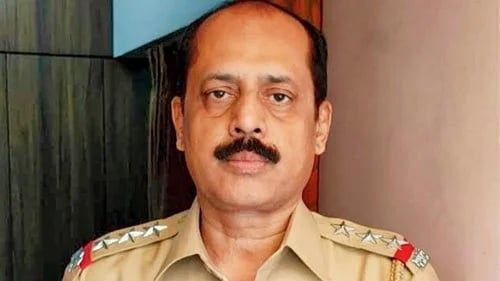
Mumbai: The special MP and MLA court has turned down suspended police officer Sachin Waze's plea for pardon as against his offer to disclose true and entire facts in connection with the money laundering allegation against former home minister Anil Deshmukh, observing that there is enough evidence against all the accused. Hence there is no need to seek evidence from Waze.
The special judge AU Kadam, has said, "In this case, according to the prosecution, there is ample evidence against not only the present applicant, but against other offenders also. Admittedly, statement of applicant is recorded under Section 164 of the Cr.P.C. (statement before the Magistrate court) and also, his statement is also recorded PMLA, 2002, which has evidentiary value."
Besides the court said, "By filing application of such nature, applicant (Waze) admits that he was privy to the offence allegedly committed by the accused. In such background, there is no need to seek evidence from the co-accused with a view to fasten liability against other offenders."
Refering to the basic object of the provisions of the pardon, the court said, "the object to allow pardon in cases where serious offences are alleged to have been committed by several persons, so that with the aid of the evidence of the person granted pardon, the offence may be brought home to the rest. The basis of the tender of pardon is not to the extend of culpability of the person to whom pardon is granted, but the principle is to prevent the escape of the offenders from punishment in serious offences for lack of evidence."
However, in this case, the court said, there is enough evidence against other accused as well, and in no way the offenders may escape due to lack of evidence.
Waze had approached the special court for pardon from the money laundering case as against the condition that he would disclose entire true and entire facts of the case to his knowledge. ED had initially consented to his plea and gave no objection. Later, however, they withdrew the consent.
ED while arguing on the plea said, "Prosecution can stand on its own without taking aid of accused as an accomplice. Prosecution under PMLA is against the proceeds of crime with entirely different motive than the other prosecution agency. Therefore, considering the nature of investigation and evidence collected by the Enforcement Directorate, it is not required to allow grant of pardon to the applicant which amounts to giving him clean chit, when he is equally liable for the offence committed."